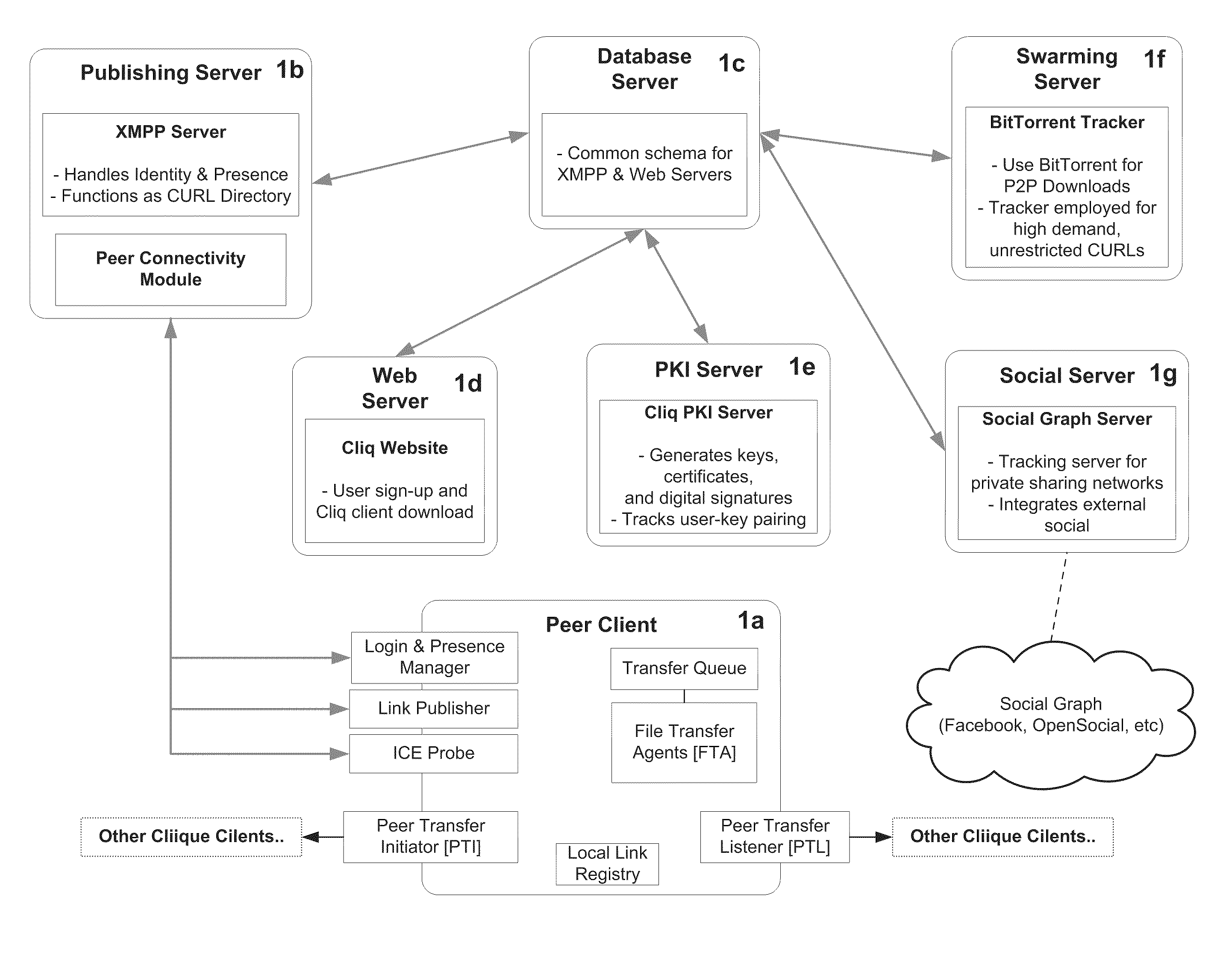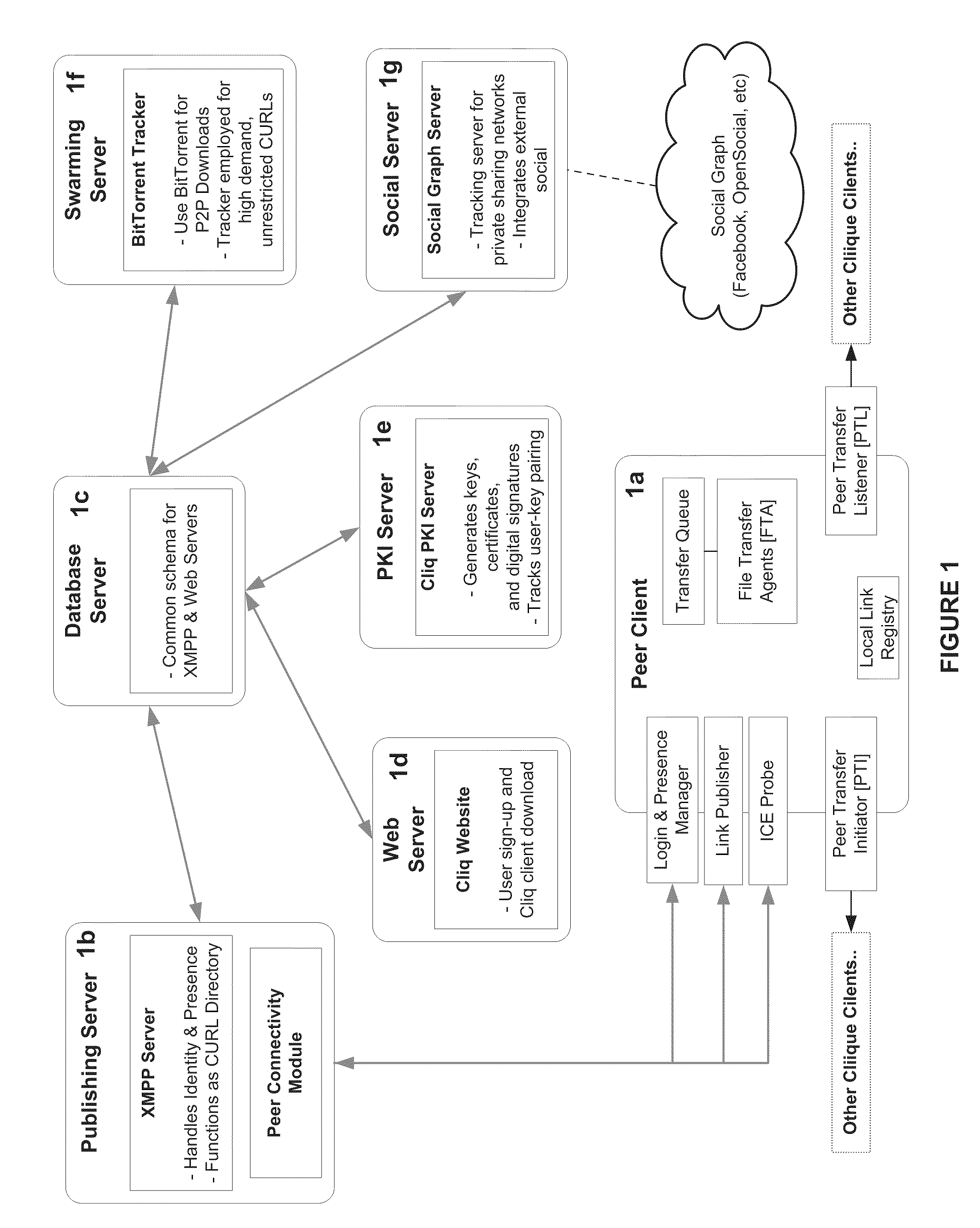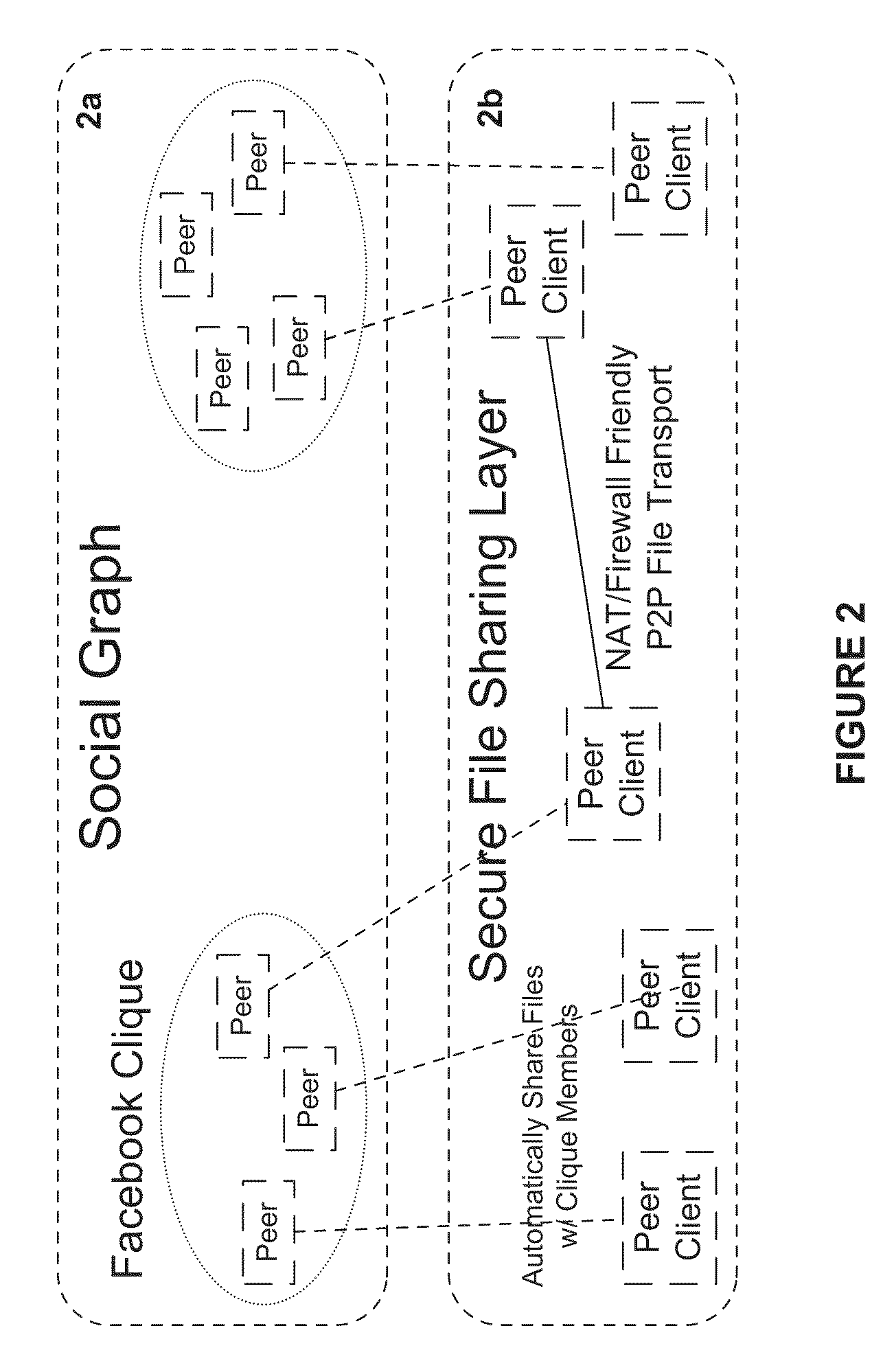System and Method for Anonymous Addressing of Content on Network Peers and for Private Peer-to-Peer File Sharing
a content sharing and peer-to-peer technology, applied in the field of file sharing systems, can solve the problems of dhts not directly supporting keyword searching, the gnutella model of all nodes being equal quickly died from bottlenecks, and it is difficult for someone to identify who is downloading or who is offering files, so as to achieve efficient and private peer-to-peer file sharing
- Summary
- Abstract
- Description
- Claims
- Application Information
AI Technical Summary
Benefits of technology
Problems solved by technology
Method used
Image
Examples
examples of embodiments
OF THE INVENTION
Example 1
P2P File Sharing Infrastructure
[0148]Referring to FIG. 1, there is illustrated a High-level Schematic of Peering System of one embodiment of the invention. It has six basic functioning modules: a Peer Client 1a, a Publishing Server 1b, a Database Server 1c, a Web Server 1d, a PKI Server 1e, and a Swarming Server 1f. Not shown are typical system components including system administrative functions, privacy protection functions, user setup and run execution functions, reporting services, input and output devices, and backup systems. Not specifically disclosed but would be obvious to one skilled in the art are provisions of interfaces and services. Also not shown or described are all references to the Database Server 1c as these would be obvious to anyone skilled in the art.
[0149]The Peer Client 1a runs continuously on a peer node. It authenticates and communicates its connectivity information periodically with the Publishing Server 1b. It negotiates direct con...
example 2
Private Sharing Network
[0155]FIG. 2 shows how a social graph can be layered on top of the P2P file sharing infrastructure described in Example 1 to enable a private sharing network (privnet). The social layer aggregates edgelinks published by peers who are members of the privnet creating a social taxonomy of shared content. Peers in the privnet can browse and search through this social taxonomy using a standard web user agent (web browser) to collaborate, interact, download, and discuss content contained within. In this model, the user experience is identical to searching, browsing, or collaborative with web-hosted content.
[0156]The Social Server 1g in FIG. 1 is used to import a social graph from a 3rd party service (e.g. Facebook, MySpace, Google, etc). The Social Server 1g publishes an HTML interface enabling any authenticated peer to bind their social identity with their filesharing identity creating a “social peer”. Any social peer can create their own privnet. Once a privnet is...
PUM
 Login to View More
Login to View More Abstract
Description
Claims
Application Information
 Login to View More
Login to View More - R&D
- Intellectual Property
- Life Sciences
- Materials
- Tech Scout
- Unparalleled Data Quality
- Higher Quality Content
- 60% Fewer Hallucinations
Browse by: Latest US Patents, China's latest patents, Technical Efficacy Thesaurus, Application Domain, Technology Topic, Popular Technical Reports.
© 2025 PatSnap. All rights reserved.Legal|Privacy policy|Modern Slavery Act Transparency Statement|Sitemap|About US| Contact US: help@patsnap.com



